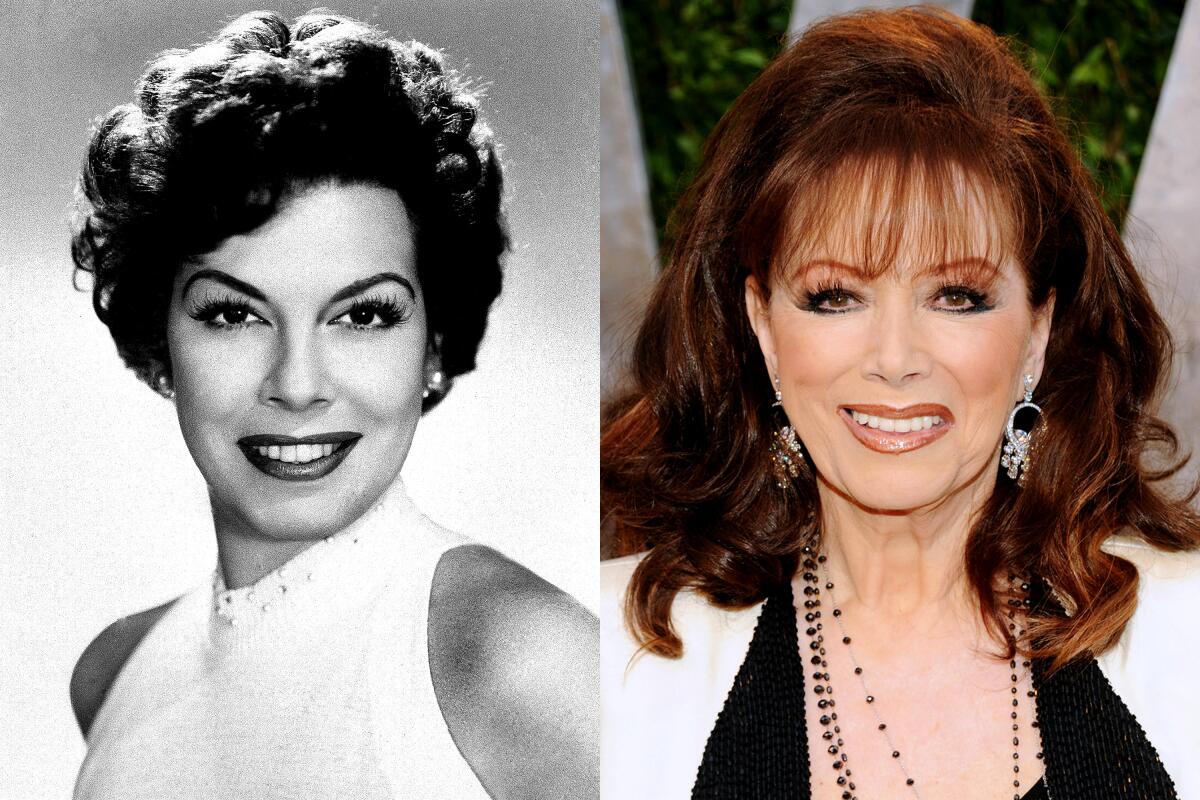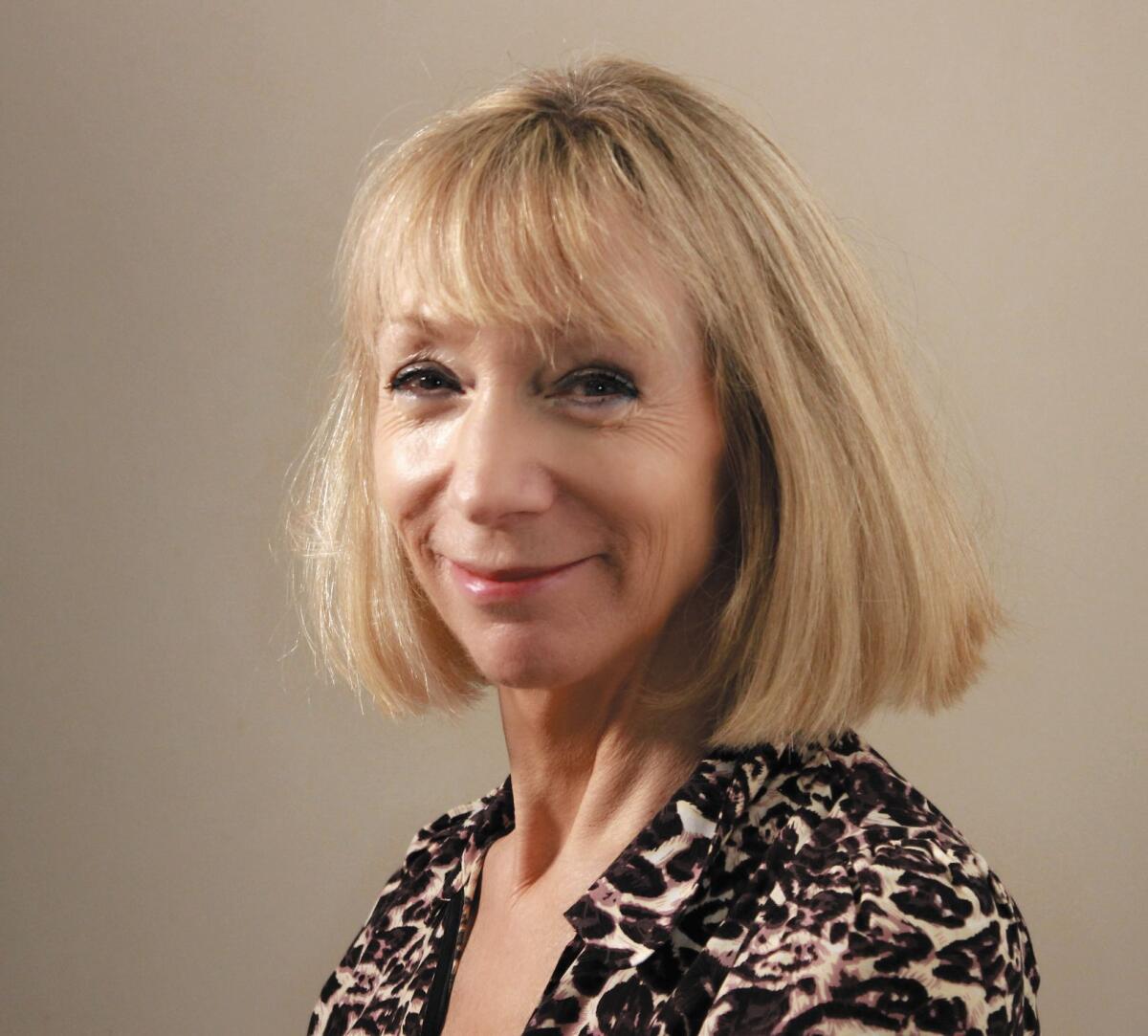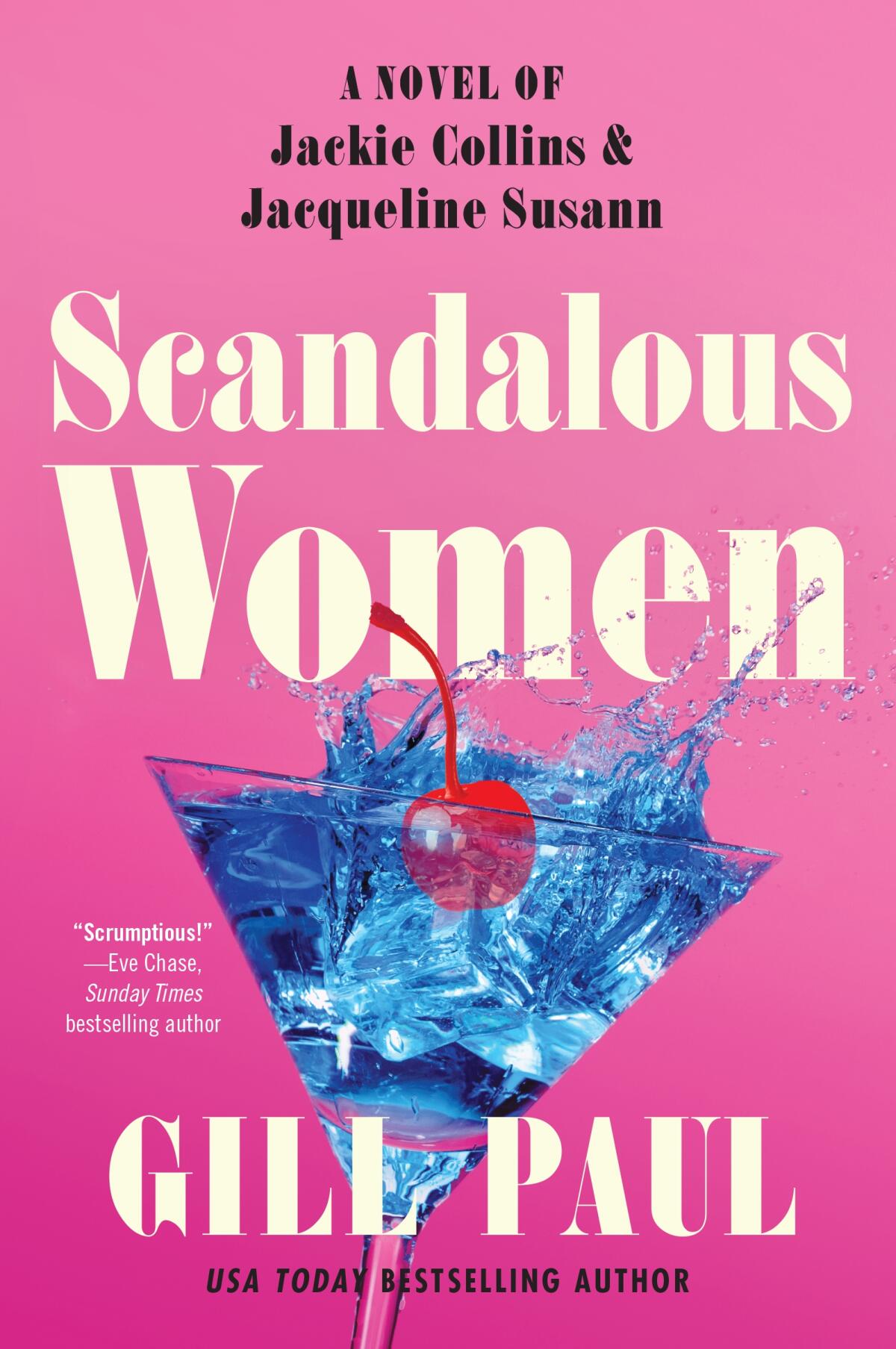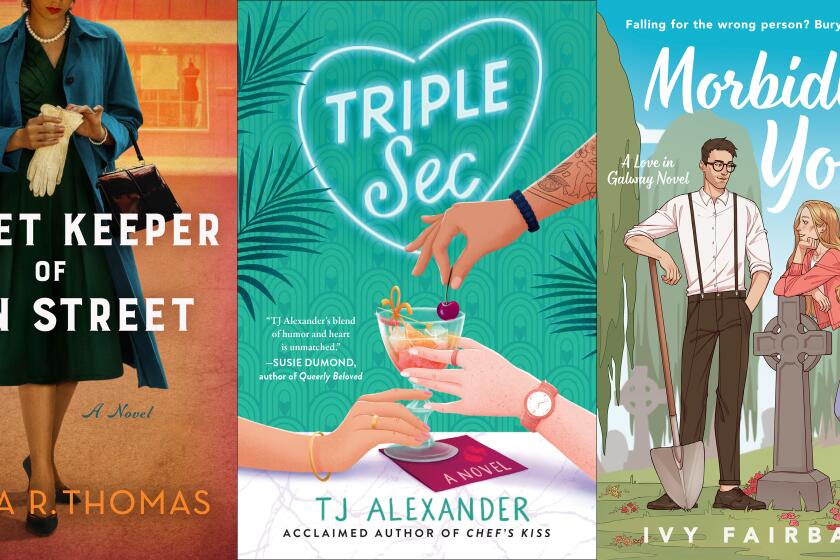How the âscandalousâ Jackie Collins and Jacqueline Susann revolutionized the publishing world

On the Shelf
Scandalous Women: A Novel of Jackie Collins and Jacqueline Susann
By Gill Paul
William Morrow & Co.: 384 pages, $19
If you buy books linked on our site, The Times may earn a commission from Bookshop.org, whose fees support independent bookstores.
Gill Paul hadnât read âValley of the Dollsâ before deciding on its author, Jacqueline Susann, as one of the subjects for her new novel, âScandalous Women.â
âI was vaguely aware that Jacqueline Susann had quite a difficult backstory, which is something Iâm looking for in my work,â Paul tells The Times from London, where she lives.
Susann was an actress before turning to writing later in life. She gave birth to her only child, who had severe autism â at a time when little was known about the disorder and even less support was available â and was herself diagnosed with breast cancer. Her drive to excel in publishing and become a bestselling author, which she achieved with âValley of the Dollsâ â credited with inventing the modern book tour â was spurred on by making sure she was able to provide for her son when her cancer returned. Susann died in 1974 at age 56.

The other titular scandalous woman is another Jacqueline, who preferred to go by Jackie, the prolific pulp fiction author and sister to âDynastyâ actress Joan Collins. The two grew up in a violent home, and Jackie Collinsâ first husband was an abusive drug addict who died by suicide after the dissolution of their marriage. Collinsâ 32 novels â all New York Times bestsellers â have sold more than 500 million copies worldwide. Collins died in 2015. She was 77.
Still, for Paul, âItâs not just about what they achieve; thereâs got to be some kind of struggle.â
In Paulâs historical fiction, which includes books about Jackie Kennedy and Maria Callas (2020âs âJackie and Mariaâ), the Romanovs (âThe Lost Daughter,â 2018) and Dorothy Parker (âThe Manhattan Girls,â 2022), Paul is âlooking for women who have maybe been misjudged by historians. Theyâre not necessarily behind the scenes, but perhaps historians have put them there. They did great things and didnât get the credit for it.â
Despite the commercial successes of Susann and Collins, their work has been widely dismissed. âValley of the Dollsâ was panned upon its release in 1966, and Collinsâ output has been derided as beach reads and chick lit.
With âWe Burn Daylight,â Bret Anthony Johnston tries to humanize the Waco siege, often remembered in sensational headlines.
âThey both popularized this idea that books could be entertainment for busy people who donât have time to sit down with really difficult books that you have to dissect the metaphors [of] and figure out the themes,â Paul says. âYou can just be entertained by a story. You could read âValley of the Dollsâ or [Collinsâ] âThe World Is Full of Married Menâ on [the subway] and be proud that this was a book that people were talking about.â
Paul worked in publishing straight out of college in the 1980s before writing historical fiction in the early 2010s. It âhad always been this old boysâ network of long lunches, men who supported their male authors and published literature with a capital L.â In the 1960s, with Susann and Collins, âIt was all beginning to change and people were starting to realize the value of womenâs books. Women did read and they didnât necessarily want to read dusty classics by pompous old men.
âI wanted to show what it was like in publishing companies behind the scenes,â Paul continues. âTo an extent, it was autobiographical. It was still an era where I had misogynist male bosses. I had male authors who thought it was part of my job description to sleep with them.â Letâs just say the firemanâs pole that Susannâs publisher Bernard Geis makes new female hires slither down to gauge their willingness to put up with on-the-job sexual harassment is not a figment of Paulâs editorial license in âScandalous Womenâ â out Tuesday. âYou couldnât make that up! We mustnât ever backslide.â

Thatâs where the character of Nancy White comes in. An ambitious young college graduate who comes to work at Susannâs publishing house and quickly notices womenâs hunger for âgritty books about romances that donât have happy endings â and for glamour, too,â writes Paul in Nancyâs voice. âWomen like stories that transport them out of their everyday lives.â
But the aforementioned old boysâ club of publishing keeps her in her place, fetching coffee and taking minutes for meetings â when sheâs allowed into them â despite pulling Collinsâ âThe World Is Full of Married Menâ from the slush pile and helping make it a success.
Paul could have just as easily crafted Susann and Collins to hate each other, as in her previous novel, last yearâs âA Beautiful Rivalâ about competitors Elizabeth Arden and Helena Rubinstein. Though thereâs no evidence that the two Jackies ever met, Paul was partly thinking of her own author friendships and the lack of envy and resentment therein when writing the one that emerges between her subjects. âJust because someone buys one book doesnât mean they wonât buy yours as well. In fact, a bestseller creates more readers.â
Summer 2024 is chock-full of romance novels with intriguing plots that explore the vagaries of the human heart.
The throughline to today is taut, with genres by and marketed to women, particularly romance, gaining popularity on BookTok and thus seeping into the meatspace. Several romance-themed bookshops have sprung up in recent years, and authors such as Emily Henry, Sarah J. Maas and Colleen Hoover owe their dominance on bestseller lists to the path Susann and Collins paved.
âThey gave women permission to write about sex,â says Paul. âThey stood up and took all the flak so that women could go on and write sex scenes.
âItâs said that thereâs a whole generation of girls who got their sex education from Jackie Collins novels,â Paul continues. âItâs not very realistic,â but nor is porn or other mainstream portrayals of sex that show women in subservient roles, she says. âIf entertaining, widely read books have sex scenes in which women are equal partners, or more than equal â women are the dominant partners â then thatâs great. Thatâs redressing the imbalance a little bit.â
As for the historical hidden figures Paul will turn her pen to next, she stays mum but says thereâs no shortage of subjects âwho made big achievements in the 20th century who were denied their place in the history books â thereâs plenty to choose from.â
More to Read
Sign up for our Book Club newsletter
Get the latest news, events and more from the Los Angeles Times Book Club, and help us get L.A. reading and talking.
You may occasionally receive promotional content from the Los Angeles Times.











